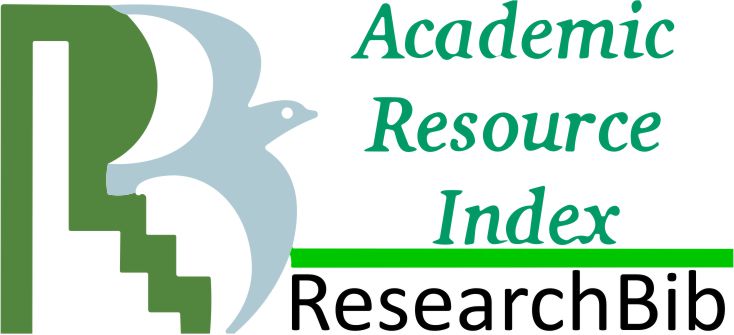DOI
10.21002/jaki.2019.02
Abstract
This study aims to examine the effect of peer honesty on the budgetary slack. This study focus on peer relations in the workplace as one of the factors that affecting budgetary slack. Non-monetary awards were also examined in their influence on the relationship. This is because many previous studies stated that non-monetary awards can strengthen or weaken performance. The data of this study were taken through independent variable manipulation experiments, namely peer honesty and non-monetary awards. This study used the experimental design 2 x 2 between subjects and ANOVA was used to analyze the data. The results of the study with 61 participants indicate that greater budgetary slack is due to the influence of dishonest colleagues than honest partners under conditions of information asymmetry. However, non-monetary awards do not affect the relationship between the two variables.
References
Alger, Ingela, dan Régis Renault. 2006. Screening Ethics When Honest Agents Care about Fairness. International Economic Review, 47 (1), 59–85. Anthony, Robert N dan Vijay Govindarajan. 2009. Management Control System Sistem Pengendalian Manajemen. Salemba Empat: Jakarta. Avey, James B., Michael E. Palanski, dan Fred O. Walumbwa. 2010. When Leadership Goes Unnoticed : The Moderating Role of Follower Self-Esteem on the Relationship Between Ethical Leadership and Follower Behavior. Journal of Business Ethics, 98 (4), 573–582. Bandura, Albert. 1971. Social Learning Theory. General Learning Press, New York. Biantara, A. A. A. dan IG.A.M.Asri D. P.. 2014. Pengaruh Kejelasan Sasaran Anggaran, Etika, dan Kepercayaan Diri pada Senjangan Anggaran. E-journal Universitas Udayana, 9 (2), 385-391. Cardinaels, E. dan J. Yuping. 2015. How Audits Moderate the Effects of Incentives and Peer Behavior on Misreporting How Audits Moderate the Effects of Incentives and Peer Behavior on Misreporting. European Accounting Review, 25 (1), 183-204. Chen, Mien-ling. 2012. The Effect of Leader Reward and Punishment Behaviors on Subordinates ’ Budget Reports. The Engineering Economist, 57 (1), 41–54. Chong, Vincent K., dan I. Ferdiansah. 2011. The Effect Of Trust-In- Superior And Truthfulness On Budgetary Slack: An Experimental Investigation. Advances in Management Accounting, 19, 55-73. Chong, Vincent K., dan I. Ferdiansah 2012. An Experimental Investigation On The Effect Of Feedback Control Policy And Need For Achievement On Subordinates’ Budgetary Slack Creation. Asia-Pacific Management Accounting Journal, 7 (1), 141-168. Chong, Vincent K., dan Syarifuddin, Imran. 2010. The Effect of Obedience Pressure And Authoritarianism on Managers Project Evaluation Decisions. Advances in Accounting, 26 (2), 185-194. Chong, M. J. Epstein dan C. Y. Loy. 2015. Advances in Management Accounting Ed. 25 pg. 49–102. Deci, E. L., R. Koestner dan R. M. Ryan. 2001. Extrinsic Rewards and Intrinsic Motivation in Education: Reconsidered Once Again. Review of Educational Research, 71 (1), 1-27. Douglas, P. C., dan B. Wier. 2000. Integrating Ethical Dimensions into a Model of Budgetary Slack Creation. Journal of Business Ethic, 28 (3), 267–277. Dunk, A. S. dan H. Nouri. 1998. Antecedents of Budgetary Slack : A Literature Review and Synthesis. Journal of Accounting Literature, 17, 72–96. Evans III, J. H., R. L. Hannan, R. Krishnan and D.V. Moser. 2001. Honesty In Managerial Reporting. The Accounting Review, 76, 537-559. Faria, J. A. D., dan S. M. G. d. Silva. 2013. The Effects of Information Asymmetry on Budget Slack : An Experimental Research. African Journal of Business Management Full, 7 (13), 1086-1099. Fisher, J. G., et al. 2002. Using Budgets for Performance Evaluation: Effects of Resource Allocation and Horizontal Information Asymmetry on Budget Proposals, Budget Slack, and Performance. The Accounting Review, 77 (4), 847–865. Gago-Rodríguez, S. dan D. Naranjo-Gil. 2016. Effects of Trust and Distrust on Effort and Budgetary Slack : An Experiment. Management Decision, 54 (8), 1908–1928. Gino F., S. Ayal dan D. Ariely. 2009. Contagion and Differentiation in Unethical Behavior The Effect of One Bad Apple on the Barrel. Psychological Science, 20 (3), 393–398. Hafiza N. S., S. S. Shah dan H. Jamsheed. 2011. Relationship Between Rewards and Employee's Motivation in The Non-Profit Organizations of Pakistan. Business Intelligence Journal, 4 (2), 327-. Haider, M. et al. 2014. A literature Analysis on the Importance of Non-Financial Rewards for Employees Job Satisfaction. Abasyn Journal of Social Sciences, 8 (2), 341–355. Haftel, S. H. dan L. R. Martin. 1993. The Effectiveness of Reward Systems on Innovative Output: An Empirical Analysis. Small Business Economics, 5 (4), 261-269. Hobson, J. L., M. J. Mellon dan D. E. Stevens. 2011. Determinants of Moral Judgments Regarding Budgetary Slack : An Experimental. Behavioral Research Inaccounting, 23 (1), 87–107. Huang, Cheng-li, dan Mien-ling Chen. 2009. The Effect Of Attitudes Towards The Budgetary Process On Attitudes Towards Budgetary Slack And Behaviors To Create Budgetary Slack. Social Behavior And Personality, 37 (5), 661–672. Innes, R dan M. Arnab. 2012. Is Dishonesty Contagious ? Ed 51st. Economic Inquiry. Joshi, P. L. dan J. Abdulla. 1996. Budgetary Control and Performance Evaluation Systems in Corporations in Bahrain. Asian Review of Accounting, 4 (2), 125–144. Kerrin, M. dan N. Oliver. 2002. Collective and Individual Improvement Activities: The Role of Reward Systems. Personnel Review, 31 (3), 320–337. Kren, Leslie. 2003. Advances in Management Accounting Effects Of Uncertainty, Participation, and Control System Monitoring on The Propensity to Create Budget Slack And Actual Budget.” Advances in Management Accounting, 11, 143–167. Kridawan, A. dan A. Mahmud. 2014. Pengaruh Kejelasan Sasaran Anggaran terhadap Senjangan Anggaran dengan Asimetri Informasi sebagai Variabel Moderasi". Accounting Analysis Journal, 3 (2). Lau, C. M. dan I. R. C. Eggleton. 2003. The Influence of Information Asymmetry and Budget Emphasis on The Relationship Between Participation and Slack. Accounting and Business Research, 33 (2), 91–104. Leavins, J. R. K. Omer dan A. Vilutis. 1995. A Comparative Study of Alternative Indicators of Budgetary Slack. Managerial Finance, 21 (3), 52–67. Libby, Theresa. 2003. The Effect of Fairness in Contracting on The Creation of Budgetary Slack. Advances in Accounting Behavioral Research, 6, 145–169. Lunenburg, Fred C. 2011. Expectancy Theory of Motivation: Motivating by Altering Expectations. International Journal of Management, Business, anad Administration, 15 (1), 1-6. Malik, M. A. R., A. N. Butt dan J. N. Choi. 2015. Rewards and Employee Creative Performance: Moderating Effects of Creative Self-Efficacy, Reward Importance, and Locus of Control. Journal of Organizational Behaviour, 36 (1), 59-74. Mizutani, F. dan E. Nakamura. 2014. Managerial Incentive, Organizational Slack, and Performance: Empirical Analysis of Japanese Firms' Behaviour. Journal of Management & Governance, 18. Nahartyo, Ertambang. 2013. Desain dan Implementasi Riset Eksperimen. UPP STIM YKPN: Yogyakarta. Ngo, H. Q. Thi-Nam-Ninh Doan dan Thanh-Nha Huynh. 2017. A Study on Managers' Creation on Budgetary Slack in Emerging Econimies: The Case of Vietnam". Asian Journal of Accounting Research, 2, 15-28. Paz, Michael; Bernhard E Reichert; dan Alex Woods. 2013. “How does Peer Honesty Affect Focal Manager Honesty in a Budget Reporting Setting?” Advances in Accounting Behavioral Research 16: 85–114 Puspitha, Desak Made Ayu Pradnya dan Ketut Alit Suardana. 2017. "Faktor-Faktor yang Mempengaruhi Senjangan Anggaran di SKPD Kabupaten Karangasem Bali". E-Jurnal Akuntansi Universitas Udayana, Vol.21.1. Putri, Ida Atu Dwiastami dan Ni Putu Sri Harta Mimba. 2017. "Pengaruh Partisipasi Anggaran, Asimetri Informasi, dan Preferensi Risiko pada Senjangan Anggaran". E-Jurnal Akuntansi Universitas Udayana, Vol.21.3. Rankin, F. W., S. T. Schwartz dan R. A. Young. 2008. The Effect of Honesty and Superior Authority on Budget Proposals The Effect of Honesty and Superior Authority on Budget Proposals. The Accounting Review, 83 (4), 1083–1099. Schlechter, A., N. C. Thompson dan M. Bussin. 2015. Attractiveness Of Non-Financial Rewards for Prospective Knowledge Workers an Experimental Investigation Anton. Employee Relations, 37 (3), 274–295. Shu, Xiaocun. 2015. Contagion Effect of Unethical Pro - Organizational Behavior among Members within Organization. Metallurgical and Mining Industry, 5, 235–243. Sonawane, Pragya. 2008. Non-monetary Rewards: Employee Choices & Organizational Practices. Indian Journal of Industrial Relations, 44 (2), 256–271. Sorauren, I. F. 2000. Non-Monetary Incentives : Do People Work Only for Money ?. Business Ethics Quarter, 10 (4), 925–944. Valle, N. D. dan M. Ploner. 2017. Reacting to Unfairness : Group Identity and Dishonest Behavior. Games, 8, 28. Vroom, V. H . 1964. Work and Motivation. New York: Wiley Wartick, M. L. dan T. J. Rupert. 2010. The Effects of Observing A Peer’s Likelihood of Reporting Income on Tax Reporting Decisions. Advances in Taxation, 19, 65–94. Young, S. M. 1985. Participative Budgeting : The Effects of Risk Aversion and Asymmetric Information on Budgetary Slack. Journal of Accounting Research, 23 (2), 829–843. Yousaf, S. M. Latif, S. Aslam dan A. Saddiqui. 2014. Impact of Financial and Non Financial Rewards on Employee Motivation. Middle-East Journal of Scientific Research, 21 (10), 1776-1786. Yuen, Desmond C. Y. 2004. Goal Characteristics, Communication and Reward Systems and Managerial Propensity to Create Budgetary Slack. Managerial Auditing Journal, 19 (4), 517–532.
Recommended Citation
Rahmawati, Aryani Intan Endah
(2019)
"PENGARUH KEJUJURAN REKAN DAN PENGHARGAAN NON MONETER PADA SENJANGAN ANGGARAN (THE EFFECT OF PEER HONESTY AND NON-MONETARY AWARDS ON THE BUDGETARY SLACK),"
Jurnal Akuntansi dan Keuangan Indonesia: Vol. 16:
No.
1, Article 2.
DOI: 10.21002/jaki.2019.02
Available at:
https://scholarhub.ui.ac.id/jaki/vol16/iss1/2












